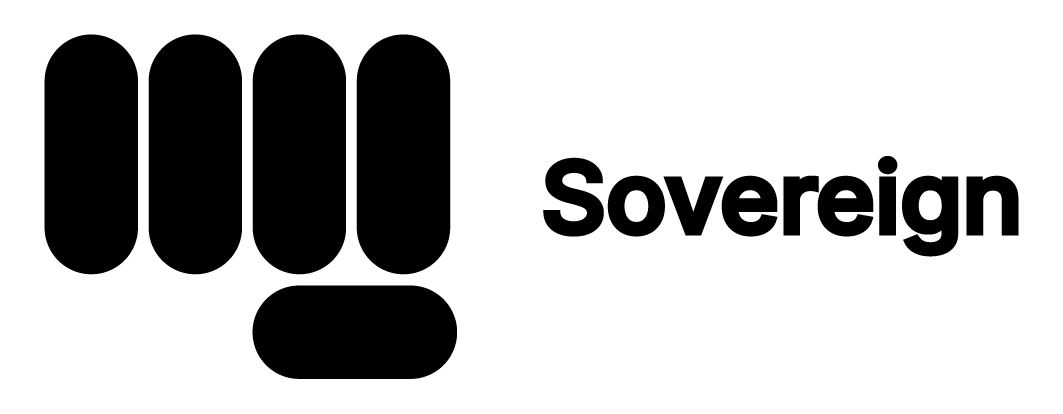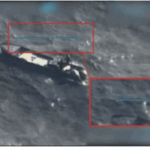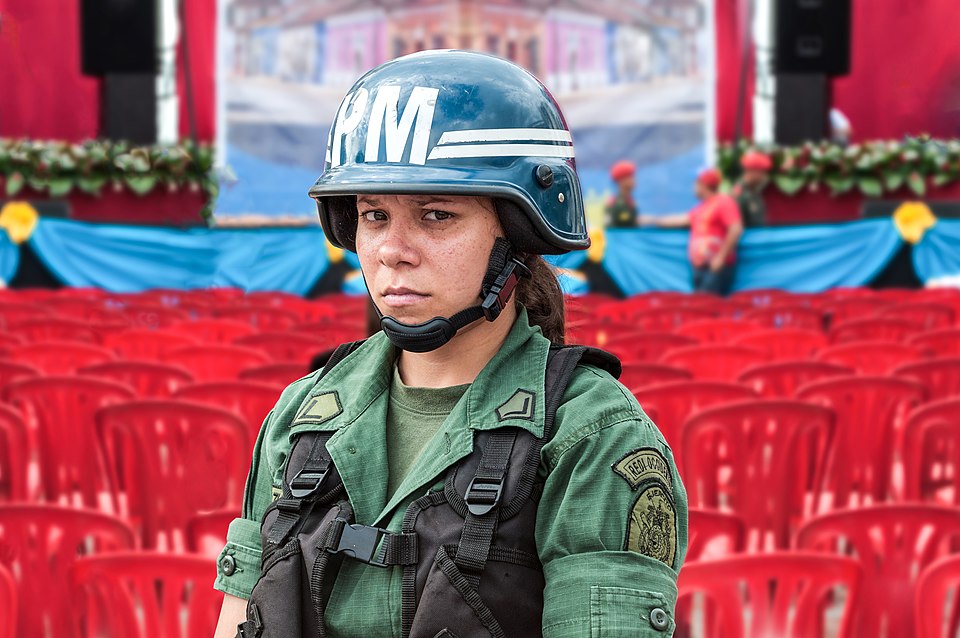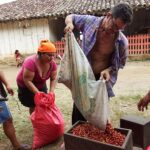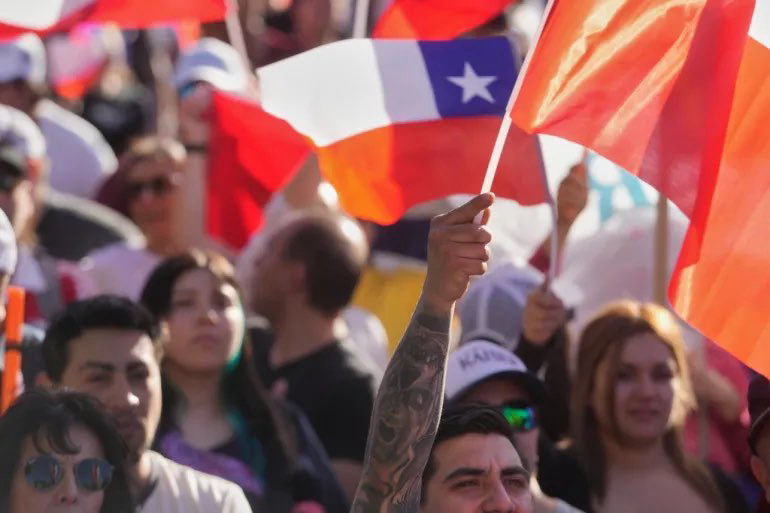Today, in any Venezuelan city, one might suddenly see a military convoy carrying equipment and weapons generally only seen during national celebrations such as June 24 or July 5. Yet what stands out most is not the vehicles or the weaponry, but the people operating and accompanying them: a diverse mix of soldiers and civilians.
This is not the classic mobilization of professional troops or conscripts seen in most parades or training maneuvers. Alongside the officers and enlisted personnel march militia members—civilians with some military training—as well as recently enlisted citizens, many of them still in civilian clothes, experiencing for the first time what it is like to ride in a combat vehicle or a Chinese-made Beiben 6×6 truck (model 2629).
The civic–military union—renamed by President Nicolás Maduro as the “popular-military-police fusion”—is striking in itself, particularly because among the militiamen and recruits are many older adults and, above all, women of all ages who have taken on the challenge of preparing for a possible US military aggression. What is even more remarkable to any observer is that these convoys move through cities that remain vibrantly normal.
The country’s broad and intensive contingency plans are not disrupting the daily life of a pueblo that has endured more than a decade of resistance to all manner of destabilization attempts, machinations, and plots. People continue to work and study, and they have not given up leisure either. Nightlife venues, concerts, beaches, parks, and plazas remain packed. The Venezuelan people’s joyful spirit is intact. If the plan behind the extrajudicial killings at sea, siege tactics, and psychological operations was to sow panic and trigger supermarket stampedes, it has totally failed.
The nation is on maximum alert, but without alarmism. Some argue that this is due to a lack of awareness about the gravity of the threat posed by the world’s leading military power—one that has destroyed many nations, often without any justification. Others, however, see it differently: as a sign of the people’s deep consciousness, understanding that the enemy seeks first to invade minds before stepping onto the territory.
On October 19, even as warships and submarines targeted Venezuela, Colombian-American singer Nicky Jam performed before 30,000 joyful and relaxed fans at Caracas’s Simón Bolívar Monumental Stadium, just south of the capital and near Fuerte Tiuna, the main military complex housing much of the capital’s defensive firepower.
The Strange “Nobel Effect”
That sector of the Venezuelan opposition that has long called for a US invasion became euphoric at the prospect seeming now closer than ever. Yet after the initial thrill came a wave of impatience, and even disappointment, as events did not unfold as expected.
Amid that anxious wait came another potential spark: the Nobel Peace Prize awarded to far-right leader María Corina Machado. But the decision produced a peculiar effect. Domestically, the reaction was lukewarm to nonexistent, revealing that Machado lacks the charisma her handlers claim and that her backing comes mainly from the country’s most hardline, pro-imperialist sectors.
On the international stage, her statements confirmed her role as an operator of US and Zionist interests, a supporter of Benjamin Netanyahu, and not a force for peace but for deepening Venezuela’s internal conflict. She presented the award as the decisive event to overthrow President Maduro, speaking not of unity or reconciliation but of revenge, punishment, and persecution of defeated adversaries.
Machado and her followers even tried to turn the canonization of José Gregorio Hernández and Carmen Rendiles (Venezuela’s first Catholic saints) into a violent political moment. In contrast, that event actually united broad sectors of society. Their protest effort vanished here, and it took an ugly turn in Italy, where an agitated group of Machado supporters verbally assaulted former Ambassador Roy Chaderton inside a church, which is hardly the gesture of a peace-loving movement.
A People Trained in Survival
Propagandists of the most extreme opposition sectors, joined by some supposedly neutral analysts, were betting that the deployment of warships, the bombing of small vessels, and above all the threat of invasion would spark collective panic and fracture the unity of the revolutionary government and public institutions.
But none of that has happened. The country remains calm, and the state continues to function cohesively. The experience accumulated since the beginning of the Bolivarian Process, especially over the past decade, has strengthened both the people and the authorities.
The population’s firm yet serene response reflects years of intensive preparation in resistance—ever since Barack Obama’s 2015 decree labeling Venezuela an “unusual and extraordinary threat” to US national security, followed by nearly a thousand unilateral coercive measures, economic blockade, and the seizure of CITGO and other assets.
Venezuelans who stayed in the country through those years were forced to learn how to produce many goods once imported, sharpen survival skills, and advance new forms of social organization, most notably the communal system. In short, they already know what a war economy is. Psychological operations are hardly the right tool to intimidate a people who have endured so much.
The same can be said of the government, which has weathered every imaginable form of attack: coups, invasion attempts, color revolutions, assassination plots, sabotage of the oil industry, nationwide blackouts, currency attacks, and induced migration. Each episode has yielded new lessons in resistance and effective response. Security forces have become more adept at detecting and neutralizing these schemes, while diplomacy has refined its capacity to expose them internationally.
As has often been the case, those orchestrating these conspiracies underestimate both the Venezuelan people and their government. US elites and their allies and lackeys persist in a supremacist mindset that has led them to failure time and again. It’s been nearly 27 years of US miscalculation. We keep resisting.
This Article Originally Appeared On Vanuzuelanalysis
Clodovaldo Hernández is a journalist and political analyst with experience in higher education. He won the National Journalism Prize (Opinion category) in 2002. He is the author of the books Reinventario (poetry and short stories) De genios y de figuras (journalistic profiles) and Esa larga, infinita distancia (novel).
The views expressed in this article are the author’s own and do not necessarily reflect those of the Venezuelan editorial staff.
